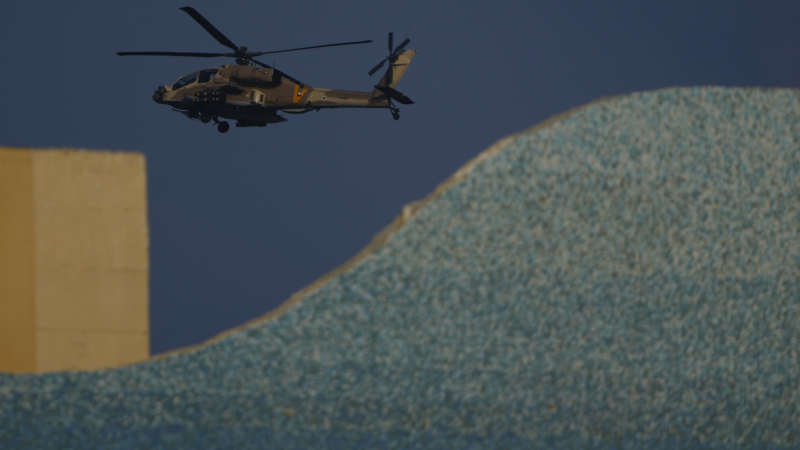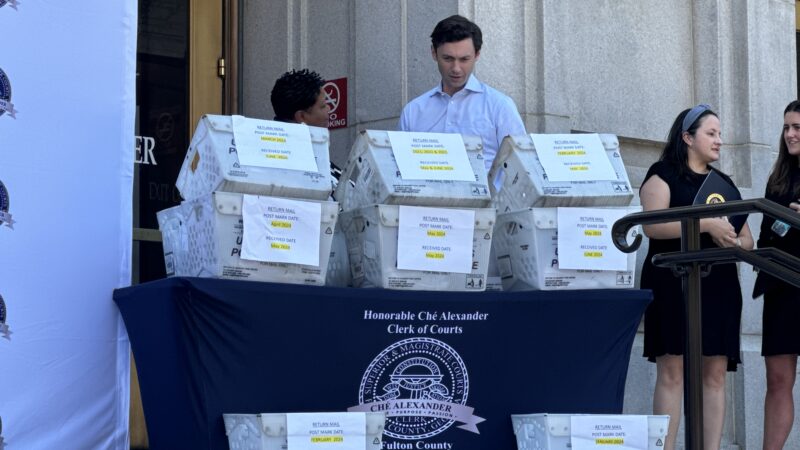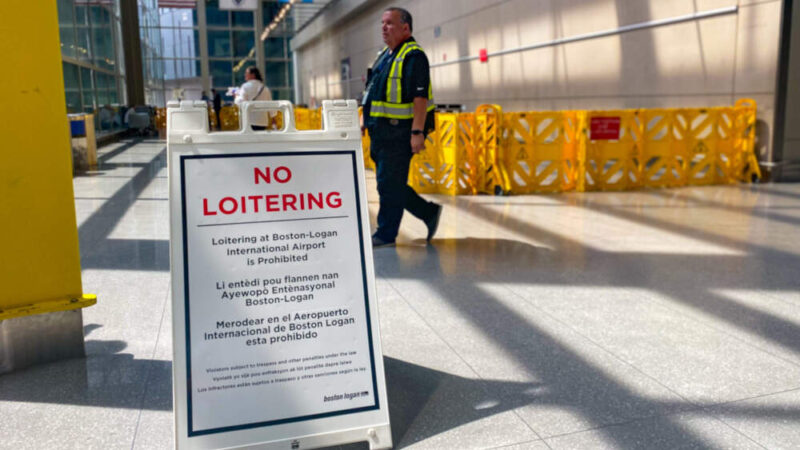Israel launches heavy airstrikes on Hezbollah targets in southern Lebanon
JERUSALEM — Israel launched a wave of airstrikes across southern Lebanon early Sunday in what it said was a pre-emptive strike on Hezbollah, as the militant group said it had launched hundreds of rockets and drones to avenge the killing of one of its top commanders last month.
The heavy exchange of fire threatened to trigger an all-out war that could draw in the United States, Iran and militant groups across the region. It could also torpedo efforts to forge a cease-fire in Gaza, where Israel has been at war with the Palestinian group Hamas, an ally of Hezbollah, for over 10 months.
By mid-morning, it appeared that the exchange had ended, with both sides having confined their attacks to military targets. But the situation remained tense, and the full extent of casualties and damage was not immediately known.
The Israeli military said Hezbollah was planning to launch a heavy barrage of rockets and missiles toward Israel. Soon after, Hezbollah announced it had launched an attack on Israeli military positions as an initial response to the killing of Fouad Shukur, one of its founders, in an Israeli airstrike in Beirut last month.
The attacks came as Egypt hosts a new round of talks aimed at ending the Israel-Hamas war. Hezbollah has said it will halt the fighting if there is a cease-fire in Gaza. Iran supports both groups as well as militants in Syria, Iraq and Yemen who might join any larger conflict.
Israeli Prime Minister Benjamin Netanyahu, speaking at the start of a Cabinet meeting, said the military had eliminated “thousands of rockets that were aimed at northern Israel” and urged citizens to adhere to directives from the Home Front Command.
“We are determined to do everything to defend our country, to return the residents of the north securely to their homes and to continue upholding a simple rule: Whoever harms us — we will harm them,” he said.
Air raid sirens were reported throughout northern Israel, and Israel’s Ben-Gurion international airport closed and diverted flights for approximately an hour due to the threat of attack. Israel’s Home Front Command has raised the alert level in northern Israel and encouraged people to stay near bomb shelters.
Lt. Col. Nadav Shoshani, an Israeli military spokesman, said Hezbollah had intended to hit targets in northern and central Israel. He said initial assessments found “very little damage” in Israel, but that the military remained on high alert. He said around 100 Israeli aircraft took part in Sunday’s strikes.
Lebanon’s Health Ministry reported that two people were wounded in the Israeli strikes in southern Lebanon. One of them, a 17-year-old Syrian, was hospitalized, civil defense officials said. Separately, a fighter for the Amal group, which is allied with Hezbollah, was killed in a strike on a car, Amal said.
Hezbollah said its attack involved more than 320 Katyusha rockets aimed at multiple sites in Israel and a “large number” of drones. It said the operation was targeting “a qualitative Israeli military target that will be announced later” as well as “enemy sites and barracks and Iron Dome (missile defense) platforms.”
Hezbollah later announced the end of what it said was the first stage of retaliatory strikes, which it said would allow it to launch more attacks deeper into Israel. But a later statement said “military operations for today have been completed.”
The group said all the exploding drones it launched hit their targets, without saying how many. It listed 11 bases, barracks, and military positions that it said it targeted in northern Israel and the Israeli-annexed Golan Heights. It also dismissed Israel’s claim that its preemptive strikes had succeeded in warding off a stronger Hezbollah attack.
Randa Slim, a senior fellow at the Washington, D.C.-based Middle East Institute, said Sunday morning’s exchange was “still within the rules of engagement and unlikely at this point to lead to an all out war.”
In the U.S., a spokesman for the National Security Council, Sean Savett, said President Joe Biden was “closely monitoring events in Israel and Lebanon.”
“At his direction, senior U.S. officials have been communicating continuously with their Israeli counterparts,” Savett added. “We will keep supporting Israel’s right to defend itself, and we will keep working for regional stability.”
The Pentagon said Defense Secretary Lloyd Austin spoke with his Israeli counterpart, Yoav Gallant, about Israel’s defenses against Hezbollah. Austin “reaffirmed the United States’ ironclad commitment to Israel’s defense against any attacks by Iran and its regional partners and proxies,” a statement said.
In recent weeks, diplomats from the U.S. and European countries have made a flurry of visits to Israel and Lebanon in an attempt to tamp down the escalation that they fear could spiral into a regional war.
Last week, Israel’s defense minister said he was moving more troops toward the Lebanese border in anticipation of possible fighting with Hezbollah.
Hezbollah began attacking Israel almost immediately after the start of the war in Gaza, which was triggered by Hamas’ Oct. 7 attack into Israel. Israel and Hezbollah have been exchanging fire almost daily, displacing tens of thousands of people on both sides of the border. Until Sunday, both sides had been careful to avoid all-out war.
Hezbollah, which fought Israel to a stalemate in the summer of 2006, is believed to be far more powerful than it was during that conflict. The United States and Israel estimate it has some 150,000 rockets and is capable of hitting anywhere inside Israel. The group has also also developed drones capable of evading Israel’s defenses as well as precision-guided munitions.
Israel has one of the world’s best militaries and an extensive multi-tiered missile defense system, and it is backed by a U.S.-led coalition that helped it shoot down hundreds of missiles and drones fired from Iran earlier this year. The U.S. military has been building up its forces across the region in recent weeks.
Israel has vowed a crushing response in the case of all-out war, one that would likely demolish critical civilian infrastructure, especially in south Beirut and southern Lebanon, where Hezbollah’s main strongholds are located. A war would likely displace hundreds of thousands of people on both sides.
Hezbollah is a close ally of Iran, which has also threatened to retaliate for the killing of a senior Hamas leader, Ismail Haniyeh, in an explosion in Tehran last month that was widely blamed on Israel, which has not said whether it was involved.
Shohei Ohtani becomes the first MLB player to top 50 homers and 50 steals in a season
The Los Angeles Dodgers star reached the 50-50 milestone in his 150th game. He was already the sixth player in MLB history and the fastest ever to reach 40 home runs and 40 stolen bases in a season.
GPB evening headlines for September 19, 2024
US Senator Jon Ossoff is pushing legislation that he says will address "leadership failures" at the United States Postal Service. Macon-Bibb County will get new affordable housing units in one of the city’s most prominent historically Black neighborhoods. The Centers for Disease Control and Prevention's Office of Rural Health has released a plan to address health care disparities.
Migrants show up at Logan for shelter, prompting fresh calls for state to change policies
An advocate for migrant families said he believes some families are reluctant to go into a temporary shelter, because it prevents them from getting longer-term emergency housing support.
Steward Health Care CEO found in contempt for refusing to testify to Senate committee
The national hospital company Steward Health Care is in bankruptcy after piling up billions of dollars in debt.
Muslim voters say they don’t feel understood or welcomed by Republicans or Democrats
This year, some American Muslims say they feel politically homeless — not understood or welcomed by either Republicans or Democrats.
Five states planning to execute prisoners this week despite federal moratorium
Despite a federal moratorium, there have already been thirteen state executions this year. And in the next week, five people are scheduled to die.





